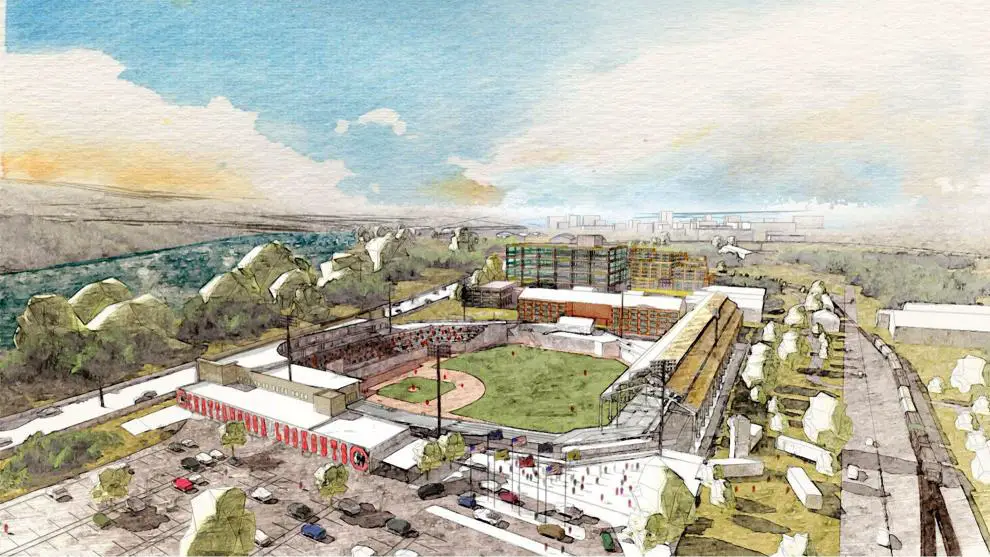A Chattanooga multi-use stadium has been planned as part of a $350 million mixed-use development in Tennessee. According to the Hamilton County Mayor, the project has been in the works for 7 years in South Broad district. These plans were initially paused because of the pandemic, but they will now resume starting with the $79.5 million stadia.
The Chattanooga multi-use stadium will be owned by the Chattanooga Sports Authority once completed and home to the Chattanooga Lookouts. The stadium will serve various purposes and the Lookouts will only have access for 20% of the year. Therefore this implies that the stadium would also be used for other non-sporting activities such as concerts and community events.
Also Read $68.5M Approved for Implementation of Sanford Stadium South Side Project
However, the Chattanooga multi-use stadium is only a small part of the development coming to the old foundry site. The 120-acre property located off Interstate 24 will also feature multi-family housing, office space, and public recreation. In addition, a new exit point from I-24 will be included as part of the project. Jim Irwin from New City Properties is serving as the master developer for the entire project.
The 8000+ seater stadium is expected to be completed in time for the Lookouts’ first pitch by April 2025. Jason Freier, the Managing Owner of Lookouts mentioned that the stadium project was a major breakthrough for the team. Especially since its current facility on Hawk Hill doesn’t meet the required standards for Major League affiliation.
Funding for the Chattanooga multi-use stadium
As the anchor tenants, Lookouts are required to pay a higher rental fee of $1 million dollars per annum. In addition, they will also cover all associated operational and maintenance costs over a 30-year duration.
The city and county will cover up to 4% of the construction costs for the Chattanooga multi-use stadium. They are expected to contribute 1.5 million each to the project. While the remaining 96% of the funding will be generated from the project itself. The proposed stadium is expected to provide state and local sales taxes, along with net parking revenues.

Leave a Reply